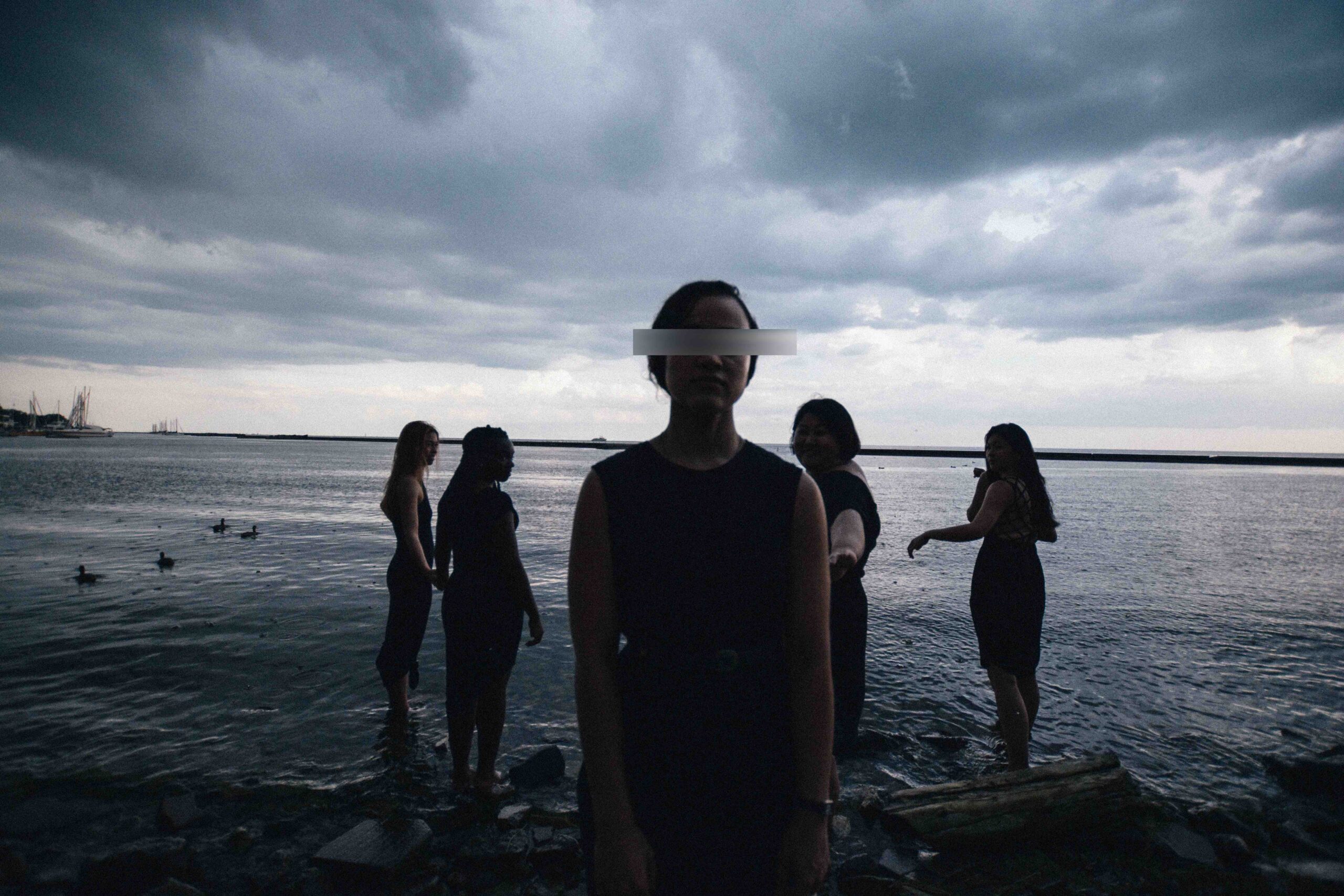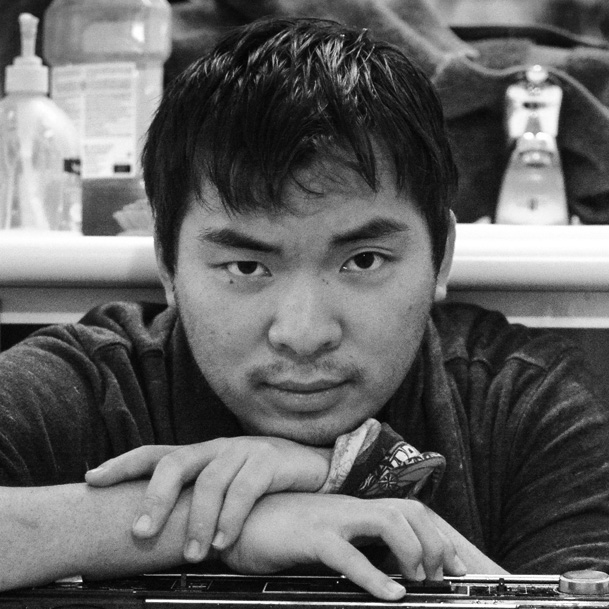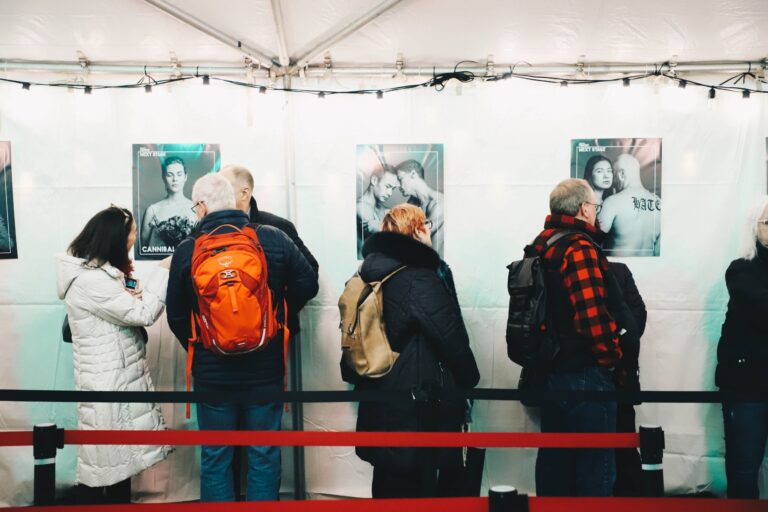8.5 Thoughts About 8 Plays in 8 Months
It started because we were drunk.
In 2015, after the Fringe lottery (where Andrew Markowiak drunkenly ran around the Tranzac incorrectly telling everyone that our number had been drawn), Andrew, Daniel Bagg, and I met at the Lab to lick our wounds, cakeless and defeated.
To us (and to many artists fresh out of school) this meant two things:
- We could either sit, mope, and return to our jobs of bar managing, plate carrying, and box office administrating and wait for another fringe lottery, or
- We could self-produce.
Three beers in and the first option became a distant memory.
Andrew, Dan, and I had three plays ready for production. All they needed was a venue and we could put them up.
By beer five, we started having doubts that this was feasible. Won’t we be competing against each other? All of our friends are doing plays all around the city. They’ll get tired and confused and angry and they won’t come.
Thus, Filament Incubator was formed as a sort of video-game cheat code. What if we became our own storefront theatre? We put up new, Canadian premieres on a monthly basis in a central venue, introducing new playwrights, directors, and artistic teams. We jump around from style to style, from Sylvia Plath and Jean Genet post-modern piece about domesticity to a show about a man who is losing his wife to a didgeridoo band. We build a consistent audience through eight different plays in eight months (the first three would be internally produced and the last five would be co-productions). We don’t compete against each other because we share audiences under the same brand. We don’t exhaust our audiences because each play is radically different.
We guarantee our artists honoraria. We supply them with venue and publicity.
By the end of the year, all eight shows get an audience, get feedback, and have, ultimately, been produced by someone, somewhere.
By beer seven, this seemed like an amazing idea. Fucking foolproof.
Six years ago, when I got kicked out of theatre school, my father picked me up from Columbia College in Hamilton, Ontario, and asked me, “So what did you learn?” I spluttered and cried at the question, but he had a point. It’s important to learn from every experience. Your failures. Your successes. To take them and grow.
I’ve learned and experienced a lot from producing eight plays in eight months. Here are some of those lessons, and in case you get lost and are wondering who these people are, you can put a face to each name over at the incubator.
1 – You can sometimes open a bottle with your forearm (Bill)
Brendan O’Reilly, our lead actor in our first show, Bill, was capable of opening bottles of beer with his forearms. There was a scene in the show where he would just place the bottle under his forearm and twist it against his skin and it would open.
I tried doing this once and I cut myself very badly.
2 – Always beat the tarp (Lemon)
We decided to do our second show, Lemon, in an outdoor canopied space—essentially someone’s huge backyard with a tarp suspended over it. (Highlights of this experience included insects, a nearly blind Shih Tzu named Mingmar, and a large indigenous rodent population.)
While it never rained during Lemon, it somehow consistently rained around Lemon. After one especially rough storm, halfway through the show, the tarp gave way on Dan, soaking him thoroughly.
Always beat the tarp.
3 – Your work won’t succeed (or fail) everywhere (Rowing)
Doing Rowing in Toronto was a pure vanity project for my frazzled ego—I needed to prove that the show was watchable. We got killed in Hamilton with Rowing last year at that city’s Fringe. Everyone hated us.
Toronto started with a considerable level of disasters. We were performing in an unfinished basement and were literally polishing the floors two nights before opening. We had to take air breaks because renovations were happening in tandem with our rehearsals and the floors were too dusty for our cast. When the Fringe staff stopped by for a safety inspection and saw how sad we looked, they gave us a pity pass instead of condemning the basement. Whenever their staff saw us in the tent, they would laugh at us when we said we were with Rowing: “Oh, that show.”
All things considered, this summer we did pretty well. For every old lady who said that she wanted to physically murder our cast, there were a surprising amount of people who were really affected by the show and felt represented by it, specifically millennials who responded to the show’s fast dialogue and themes of toxic masculinity. We sold out a night, made a website’s pick of the Fringe list, and had pretty solid crowds.
We’ll still be that show in a basement though.

Cast of Rowing. Photo by Jordan Laffrenier
3.5 – Always have a pie (Fundraisers)
We give a pie away at every one of our fundraisers because the first time we had one, we ran out of door prizes and Laura, Andrew’s girlfriend, had bought a pie that she really didn’t want to eat. I think the only reason some people come to our fundraisers is to win a pie. We don’t see these people at any of the shows in our season.
But hey, we have their money.
4 – Gambles pay off (Hot Kitchen/SECOND SHIFT)
Hot Kitchen/SECOND SHIFT had probably the best marketing plan even if I still have no idea what it was. They barely postered, I didn’t see their postcards anywhere.
To date, they are our top-selling show.
Sometimes you just have to trust that another company’s strategy works.

Alanna Dunlop in Hot Kitchen/SECOND SHIFT. Photo by Daniel Bagg
5 – Always check the weather (Swan)
I wrote and am directing Swan because someone told me that I didn’t know how to write for women after Rowing’s male-dominated cast. I’m stubborn and stupid so I wrote a play featuring only women who never talk about or are even interested in men.
The day of the photo shoot, Marina (who plays Jenna in the show), sick and feverish, blankly stared at the sky and said it was going to rain. I confidently told her that she was wrong and we’d be fine. As I asked Marina to step barefoot, ankle-deep into Lake Ontario, it began to pour and then hail. Marina, feet wet and miserable, gave me a look of endless despair. You can see this despair in most of our photos.
6 – Embrace your similarities (Tire Swing)
One of the things that we’re especially proud of when it comes to the incubator’s programming is that each of the eight plays is radically different from the others. This is true for all but two of them.
Tire Swing and Swan are sibling plays. When Curtis first approached me to produce Tire Swing last year, we had no idea that we were writing the same play. Both plays have a predominantly queer cast of characters. Both plays have supernatural elements that deal with missing persons. Both plays are set in our hometowns of Clinton and Hamilton, Ontario (ironically, Canadian cities that share names with U.S. politicians made popular in 2016). Both plays are told in the same style of active narration and have elements of horror and thrillers. All of these similarities occurred without either playwright being aware of the others’ play.
Rather than compete with each other, Tire Swing and Swan are happening right after each other to show two different takes on a queer-horror play in both content and subject matter.
Besides, how many queer-horror plays are out there anyway?

Cast of Tire Swing. Photo by Jordan Laffrenier
7 – A spoonful of salt (Till Death Do Us Part)
We discovered Till Death Do Us Part at York University’s archetype projects. Prior to this, we spent most of our time at York discovering Lauren Griffiths, the show’s creator. York University does this weird thing where students split into different fields after first year. This means in year one, there are a bunch of people who have no interest in constructing risers, and people who have no interest in being actors. Lauren belonged to the former group.
My favourite memory of Lauren is in a class where we had to build flats. While everyone else was running around with pneumatic staplers, trying to get the frame right, Lauren was in a corner, staring at her pile of rubble, hopeless and realizing that, like the majority of us, she’d never get it done on time. As we walked out of Stagecraft, I hear her laugh, “Well, that fucking sucked.”
I trust Lauren to deliver something salty and funny with Till Death Do Us Part, like she always does. Because sometimes things do fucking suck. And it’s important to acknowledge that and laugh at .
8 – Learn how to let go (Paradise Comics)
I cried the first time I read Paradise Comics. I never cry when I read plays. Crying is reserved for watching every scene in Star Wars Episode 7: The Force Awakens and when basketballs are thrown at me.
Paradise Comics is the type of show I wish I wrote when I was writing coming-of-age stories. It’s funny, it’s unsentimentally touching, it’s about death and how two different generations grieve. In this year of deaths in our theatre community, I think it’s kind of fitting that we’re ending our season with a play about grieving.
What I’m learning the most about Paradise Comics is how important it is to let go of things that you love. I’m barely involved (I’ll be entering rehearsals for another show as soon as Swan ends), the director is someone I’ve never worked with before, I don’t know the cast. Sometimes it’s better to just watch something beautiful grow on it’s own. If there are better people for the job, always choose them.
Swan, produced by Little Black Afro in association with Filament Incubator, is on until November 13 at Theatre Passe Muraille.
For tickets or more information, click here









Comments